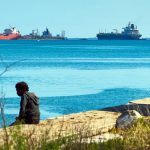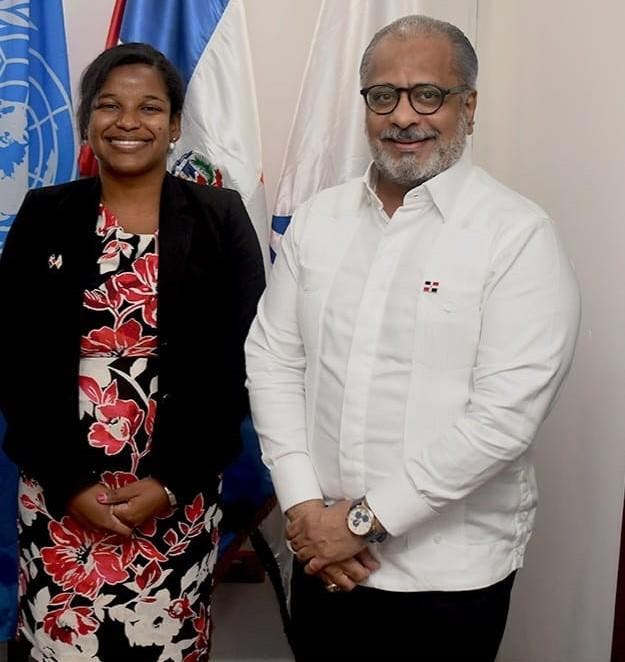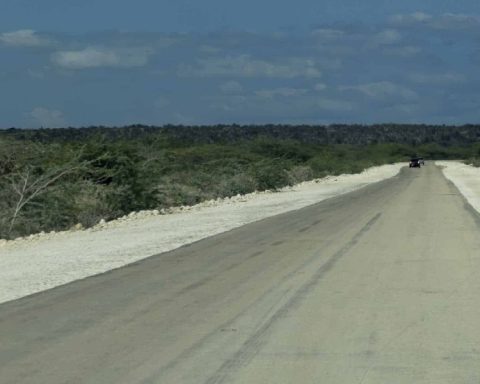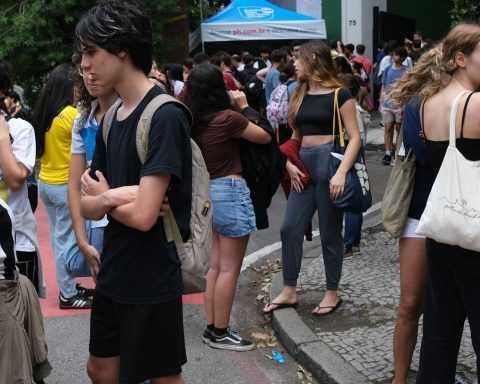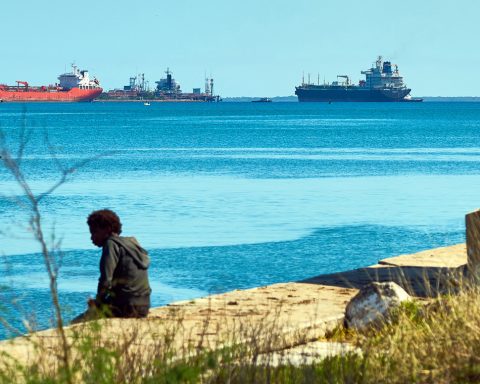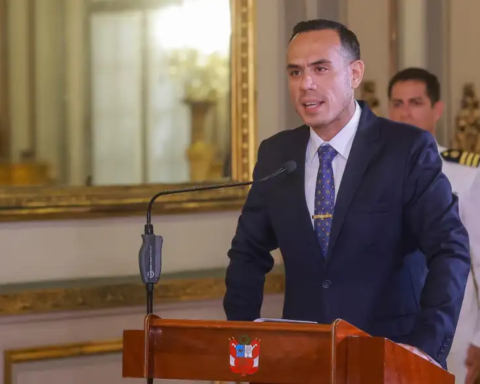The walls impregnated with the pink and light blue of some poster color the streets with little traffic. The allusions to the referendum on March 27 against the Emergency Law are similar to those of any city in the interior, but every one or two blocks there are more things that attract attention: mamushkas, words that are difficult to pronounce and the epithet of “colony Russian” every time you read “San Javier”.
The setting is a small town to the west of Río Negro, almost when Uruguay ceases to be a territory and becomes a river, and the explanation is that many of its 2,000 inhabitants They are descendants of the dozens of Russian families who arrived in that corner of the map in 1913.
But while the attention of much of the world is focused on the conflict that has Russia as one of the protagonists, who live in the only locality in this hemisphere where there is a predominance of descendants of that country, they avoid referring to the war with Ukraine. Many due to ignorance. Others out of fear.
The more than 13 thousand kilometers of distance that separate Ukraine from San Javier do not prevent some from preferring the low profile and answer, with some irony, that they don’t want to talk to The Observer so that nothing happens to them. Several, however, give this long stretch one of the explanations for the apathy in the face of escalating warfare.
Diego Battiste
The mamushkas in the main square of San Javier.
Most are aware of what is happening on the other side of the ocean, but almost all admit that conversations with neighbors continue as usual and that war, like so many others, is just another topic. “The conflict has caused concern in the population, but they do not see it as something so personal because as the years have passed the ties have been diminishing,” he told The Observer the mayor of the town, Washington Laco.
“The mother country no longer pulls so much or, at least, it is no longer the same effervescence as before”explained in the same sense the person in charge of the tourism office for San Javier, Leonardo Martínez, whose grandparents arrived in the country several decades ago.
From those first settlers where the great majority integrated the “New Israel” cult, who arrived in search of a new promised land and split from the Russian Orthodox Church, now only grandchildren, great-grandchildren and some children remain. Russia is something like a reference or a part of family history, but little more.
Sentence
In what two readings are not made among the inhabitants of San Javier is the reprobation of the use of weapons as an instrument for conflict resolution.
Sitting in a chair at the back of her house, a woman with a Russian mother and a Ukrainian grandmother expressed that war does not seem like a solution to her because, to avoid it, people have the “gift” of speaking. “We are not beasts! Politicians are smart people, gosh, can’t they reason? Maria Kharchenko wondered.
He believes, like Bernardo Socorov, that wars cannot lead to anything good. Alejandro Semikin thinks the same: “what are you fighting for? I don’t get it and I won’t get it either.”lamented the 88-year-old man, the son of a Russian mother and father, in dialogue with The Observer.
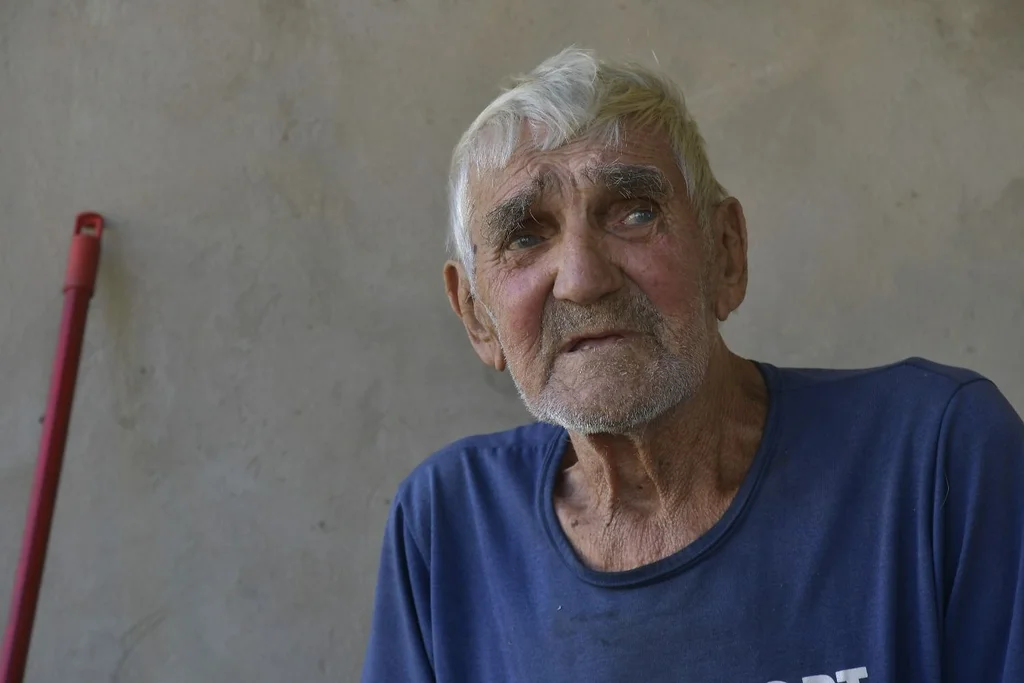
Diego Battiste
Alejandro Semikin was born in San Javier, but his parents were Russian.
Nelly Chulak’s grandparents arrived mobilized by the religious movement of the early 20th century, but also because they saw the beginning of a bloody conflict that ultimately ended up being the First World War. “They wanted a place to stay and the feeling I have towards them is one of peace,” she said. That is one of the reasons why the conflict sensitizes her and because she believes that she “does not deserve” something like this at this time. “That’s what diplomatic relations are for, conflicts can be resolved by talking,” the woman assured.
Something similar responded Oscar Malarov, a man with a restaurant where on the front page of the menu he has shashlik instead of roast or vareniky instead of ravioli. In his place set with flags, photos of the first settlers, several mamushkas and a television where videos with typical Russian dances are repeated, Malarov referred to the culture of that country as “ours” and believed that “wars should not exist” because there are “many diplomatic ways” to solve them.
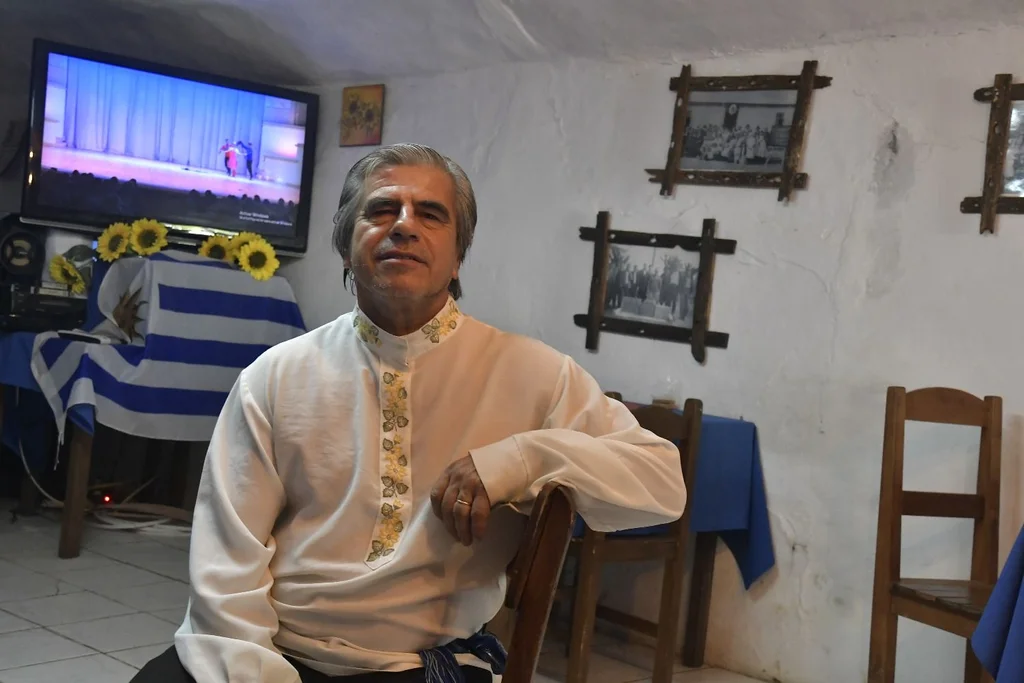
Diego Battiste
Oscar Malarov in his restaurant in San Javier.
“What would our grandparents say?”was the question asked by Martínez to condemn the invasion of Ukraine ordered by Vladimir Putin last week. The head of tourism and descendant said that before he had a particular admiration for the Russian president whom he saw as a “born leader”, but now he does not represent him. “This is not the Russia we want”synthesized.
The reactions
When Kharchenko found out about the conflict, he decided that he would be aware of it, as with other issues, but that he would not be very involved. “I don’t want to get into that maelstrom,” he said, but then he said that a few days ago he posted an image in a group of Russian and Ukrainian immigrants where a soldier was holding a dog in his arms, in addition to some thoughts of Mahatma Gandhi that he also had hanging. in the living room of his house. And not much else.
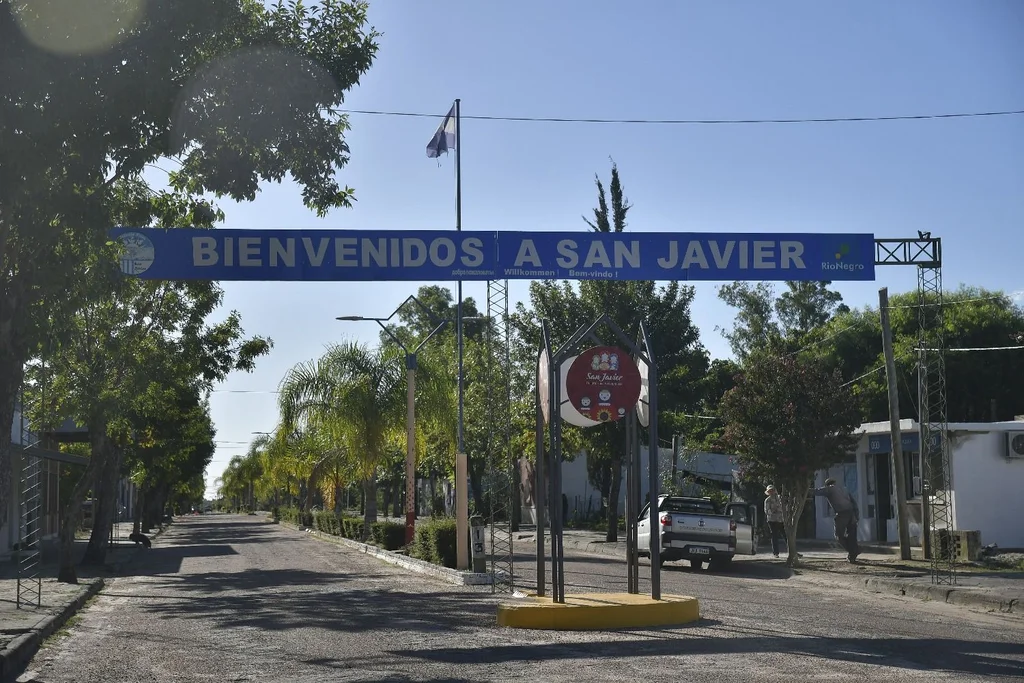
Diego Battiste
The town was founded in 1913 by several Russian families.
with your neighbors He has not had very different talks than before and Semikin added that he “didn’t feel anything” different in the town after the war broke out. “The truth is that I feel sorry for what is happening, but it does not affect me so much as to be a fanatic and go out and say that I am Russian,” he explained, after saying that despite the fact that his parents were of that nationality, he has not even turned on the radio to find out the latest details of the conflict. “I have too much conflict on my own!” He launched, laughing.
In Mariela Logvinenko’s store, the subject has not been in the typical talks at the supermarket checkout either. The woman of Russian grandparents said that war is not present in society “beyond the concern as human beings for what is happening”counted.
Their reaction has not been to demonstrate on social networks, but rather to participate in prayer chains that have been spontaneously organized in San Javier. “But it is one more,” Logvinenko clarified, who said he did not experience the war in a special way despite his family history. “We are children of descendants and we want to keep our roots alive, but what I feel and what I think is that we are Uruguayans before anything else,” he justified in dialogue with The Observer.
On a political level, the point of view is that, although the feeling of neighbors for family origins is still maintained among those who have descendants, in the face of the war in Russia and Ukraine, people “He doesn’t want to get involved or take a stand.” The mayor and the person in charge of tourism agree on this: “Everyone has their feelings and the uncomfortable situation, but there are no people for or against one country or another,” Martínez synthesized.
For the leaders and for some neighbors, the issue generates a greater effect due to its impact on daily life than due to blood ties. “Now the fuel has gone up!” lamented Susana Kugan leaning on the porter of her garden, after remarking that the conflict continues, but not too early despite being the descendant of a mother and father who came from the country that is now at war.
worry
The first thing Chulak felt when he heard about the Russian invasion it was surprise. And a “very ungrateful”, as he described it, because at this point in the circumstances it is difficult to accept a conflict of these characteristics.
The woman said that, in her opinion, “The little town is being watched to see what the reaction is”, but the only judgment that arises is that of rejecting war. consulted by The Observer Regarding the restraint of the inhabitants of San Javier to testify, he replied that “it is logical not to want to talk much” because simply “it is not worth it and cannot be tolerated.”
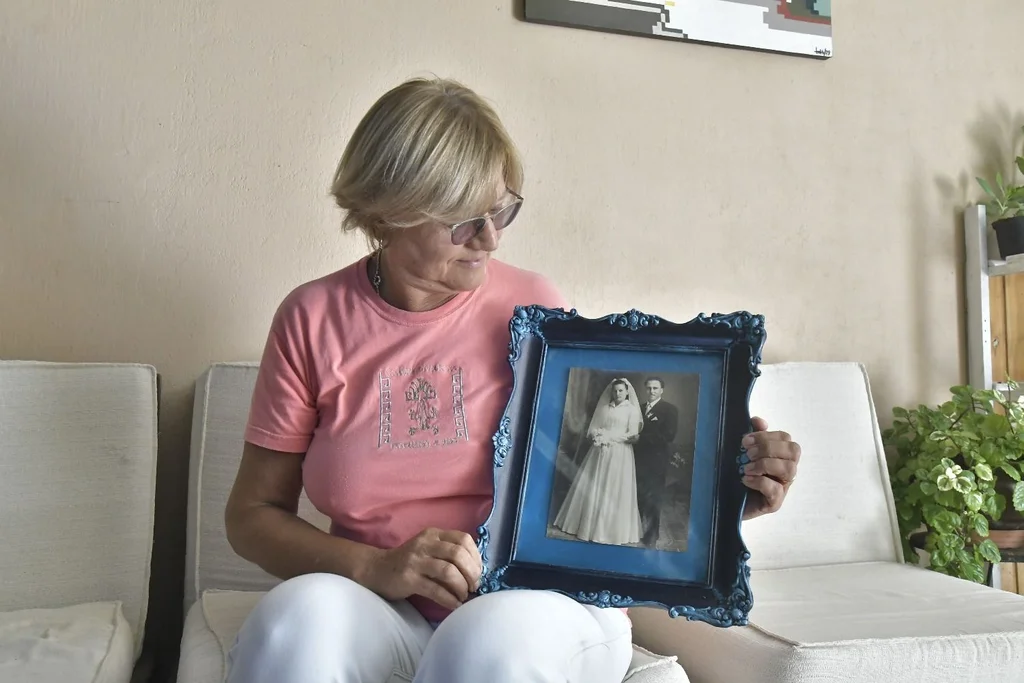
Diego Battiste
Nelly Chulak next to a portrait of her Russian ancestors.
But between the silence of several of the neighbors, the jokes about the fear that some Russian leader will be offended by the comments and launch an offensive against this small town, some recognized a bit of sensitivity due to their family roots. Chulak, for example, said that he can only remember his grandparents with peace and that the conflict “impacts” his history and his ancestors. “We are descendants”, he justified himself.
Sitting at a table in his restaurant, Malarov made a similar assessment. “It’s hard to talk about this because we suffer it,” the cook said that although he does not have close relatives in Russia, he feels part of his identity and his values.
The snippets of Russian culture are there, hanging on the wall of his place, and the comments of customers and tourists about the war have not been lacking. “What creates fear is that we think we agree with what is being done,” Malarov said, before saying: “but we are not!”
“Greater Bond”
During the dictatorship and because of the vague associations with communism, with the World Cup later and, now, because of the war. From time to time, eyes fall on San Javier and its close ties with Russia due to its history and the blood of its inhabitants is claimed by the authorities. The mayor told El Observador that, in his opinion, “the link should be even greater.”
In this context, Laco explained that “there is an effort” by the community to achieve this and said that they are working on the preparation of a museum where part of the town’s history will be exhibited. He also insisted on the need to teach Russian again in educational centers and highlighted the festivals, the typical Russian gastronomy and the Kalinka group as a contribution to culture.









